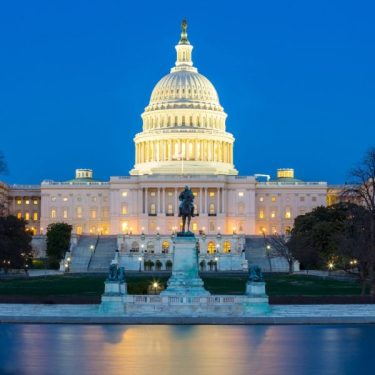At March 11 Event, Advocates will Promote Extension and Expansion of Certified Community Behavioral Health Clinics (CCBHCs)
New Report Outlines Benefits of CCBHC Program for People, Communities
FOR IMMEDIATE RELEASE
Contact:
Sophia Majlessi
SophiaM@TheNationalCouncil.org
(202) 621-1631
Washington, D.C. (March 10) – Behavioral health care professionals from across the country will come together on Capitol Hill this week to urge members of Congress to support the bipartisan Excellence in Mental Health and Addiction Treatment Expansion Act (S. 824/H.R. 1767), which looks to extend and expand Certified Community Behavioral Health Clinics (CCBHCs) for two years and add 11 states before the demonstration expires on May 22.
More than 100 CCBHC advocates will join Sens. Debbie Stabenow (D-Mich.) and Roy Blunt (R-Mo.) at a March 11 event to outline the benefits the clinics provide to tens of thousands of vulnerable Americans with mental health or addictions and call for immediate action by lawmakers.
“Neglecting to extend and expand the CCBHC program would devastate our nation. These clinics play such a vital role in mental health and addictions care to the most vulnerable people in our communities,” National Council for Mental Wellbeing President and CEO Chuck Ingoglia said. “We are grateful for the work of Sens. Stabenow and Blunt and many others who want to bring the benefits of CCBHCs to more people in more states and communities while allowing those currently served by a CCBHC to continue receiving the treatment they depend on through the Excellence in Mental Health and Addiction Treatment Expansion Act.”
In 21 states, CCBHCs have delivered treatment to more than 400,000 patients, according to the Department of Health and Human Services, Substance Abuse and Mental Health Services Administration (SAMHSA). Since CCBHCs began their systems transformation two years ago, they have been filling the gap in the unmet need for addiction and mental health care, supporting local criminal justice systems by providing effective diversion and reentry solutions and increasing access to evidence-based mental health and addiction treatment across the country.
“It is time to act. Mental illness and drug addictions affect about one in five people in our country. It is exciting to see the tremendous success of these community clinics in delivering treatment and changing the lives of hundreds of thousands of people. The results certainly make the case for expanding these highly successful services to people in communities across our country,” said Sen. Stabenow.
Today, the National Council released a new report, “Hope for the Future: CCBHCs Expanding Mental Health and Addiction Treatment,” outlining the early impact of CCHBCs as they change the way mental health and addiction treatment services are provided.
The report highlights:
- CCHBCs have expanded their patient caseloads by an average of 25%, making inroads against the high levels of unmet need that leave 90% of Americans with an addiction and 67% of those with a mental illness without access to services.
- Nearly all CCBHCs (84%) offer medication-assisted treatment (MAT).
- CCBHCs are reducing the burden on jails, first responders, hospitals and emergency departments by providing round-the-clock crisis care and intensive services designed to reduce recidivism and hospital readmission.
- CCBHCs are improving outreach and access to care for veterans, with 64% of CCBHCs expanding services to veterans.
- CCBHC clients report a 61.6% reduction in hospitalization and a 62.1% reduction in emergency department visits.
The National Council is committed to establishing a total of 500 CCBHCs nationwide, serving 2.9 million individuals, by 2025.
“Nearly one in five Americans suffers from a mental or behavioral health issue that is diagnosable and almost always treatable, but only a fraction receives the care they need,” said Sen. Blunt. “The National Council’s new report shows that the Excellence in Mental Health Act has had a substantial impact in bridging the gap and improving access to care. As one of the pilot states participating in the Excellence program, CCBHCs in Missouri have helped people get treatment faster and closer to home, provided new tools to law enforcement and brought us closer to our goal of treating mental and behavioral health like all other health. Given the demonstrated success of the Excellence program so far, now is the time to keep building on the progress that’s been made by extending and expanding funding for CCBHCs.”
At the March 11 fly-in event, Sens. Stabenow and Blunt will voice their support for extending and expanding CCBHCs. Other speakers include:
- Kim Scorza, President/CEO, Seasons Center for Behavioral Health, Spencer, Iowa
- Kelly S. Rowe, Sheriff, Lubbock County Sheriff’s Department, Lubbock, Texas
- Stacy Cary, Certified Recovery Specialist, Centerstone, Indianapolis, Ind.
CCBHCs were established by the 2014 Excellence in Mental Health and Addiction Treatment Act, resulting in the most significant expansion of community mental health services in decades.
Press Conference Details:
CCBHC Advocacy Event
Wednesday, March 11
11:30 a.m. – 12:30 p.m.
325 Russell Senate Office Building
Kennedy Caucus Room
CCBHC Quick Facts:
- CCBHCs are a product of the Excellence in Mental Health and Addiction Treatment Expansion Act (S. 824/ H.R. 1767).
- Congress has extended the eight-state demonstration six times since March 31, 2019.
- With the deadline once again looming, advocates from more than 100 behavioral health clinics and clinics that hope to become a designated CCBHC will ask Congress this week to extend and expand the CCBHC demonstration for two years and add 11 states to the program before it expires May 22.
- In his February 10 budget request, President Trump proposed $1.2 billion in funding for CCBHCs.
- The Excellence in Mental Health and Addiction Treatment Act is an eight state Medicaid demonstration designed to provide intensive community-based mental health and addiction treatment services to low income persons with severe mental illnesses and opioid use disorder through CCBHCs.
Note to Reporters/Editors: Press conference will be held following remarks from speakers. All speakers will be available for questions. Live stream the event here.
About The National Council
Founded in 1969, the National Council for Mental Wellbeing is a membership organization that drives policy and social change on behalf of over 3,200 mental health and substance use treatment organizations and the more than 15 million children, adults and families they serve. We advocate for policies to ensure access to high-quality services. We build the capacity of mental health and substance use treatment organizations. And we promote greater understanding of mental wellbeing as a core component of comprehensive health and health care. Through our Mental Health First Aid (MHFA) program, we have trained more than 4 million people in the U.S. to identify, understand and respond to signs and symptoms of mental health and substance use challenges.



